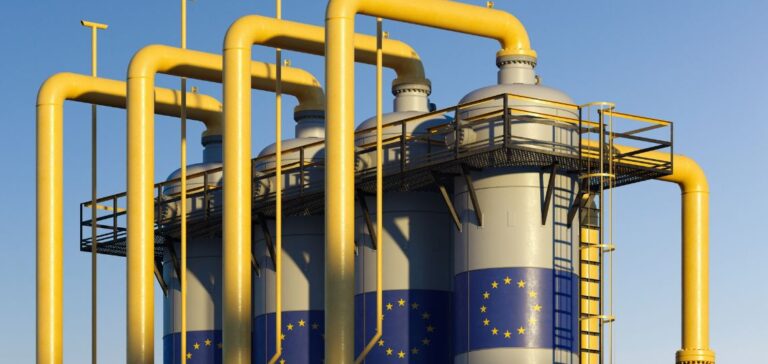Sofie de Rous is the first to admit it: before this year, it was a bit like Versailles at her home, a small house on the Belgian coast, often heated to 21°C: “I admit, I like a warm house.
But like millions of Europeans, this 41-year-old communicator in an architecture agency saw her bill skyrocket from the spring, after the invasion of Ukraine by Russia, with the gradual closure of Russian gas pipelines to Europe.
Gas prices have soared, with a very real and expensive consequence: Europe and Asia are now bidding against each other to snatch up cargoes of liquefied natural gas (LNG) produced further afield, in the United States, Qatar or elsewhere.
Countries such as Spain and France have reacted by freezing rates for consumers, but others, such as Belgium, have more or less let suppliers pass on the increase.
“I panicked a bit,” says Sofie, owner of a poorly insulated 90 square meter house in Oostduinkerke, heated by a gas boiler. She was paying 120 euros per month before the war for gas and electricity: her bill has increased to 330 euros. On reflection, she does not regret this “realization”.
Today she watches her consumption, heats at 18°C, and asks for information about installing solar panels and double glazing… Like Sofie, a new generation of Belgians, French or Italians has lost its energy carefree attitude in 2022 and learned to watch its radiators. In the old world, gas was abundant and cheap. Its reference price on the European market varied little, around 20 euros per megawatt-hour. This year, it rose to 300 before falling back to 100 euros. “I’ve never known such a chaotic period,” Graham Freedman, an analyst at Wood Mackenzie, which has been monitoring the natural gas market for 40 years, told AFP.
Forced Sobriety
Because of the crazy prices, factories, especially in the German chemical industry, which had been fed with gas from the East since the Soviet era, had to shut down. However, European reserves were filled to the brim during the summer with the last cubic meters of Russian gas, and no one was cut off. “Until February, the very idea that Europe could get by without Russian energy seemed impossible,” recalls Simone Tagliapietra of the Bruegel think tank in Brussels. “The impossible has become possible.”
The Europeans were certainly lucky: the mild autumn delayed the lighting of the boilers. But something unexpected happened. They have significantly reduced their energy consumption: -20% of gas in the EU from August to November, compared to the previous five years, according to Eurostat.
Half of all Germans have gas boilers and their decrease in consumption is “extreme, enormous”, confirms Lion Hirth, professor of energy policy at the Hertie School in Berlin. He sees it as a desire “not to pay Putin” as much as to reduce the bills. All indications are that these will remain salty. And it is not the “cap” adopted by the EU in December for wholesale prices that will really bring them down, experts predict.
Not enough gas
In a few months, Russia has thus lost its first gas customer, Europe, whose purchases have fallen from 191 billion cubic meters in 2019 to 90 billion this year, and probably 38 billion in 2023, predicts Wood Mackenzie.
It was necessary to compensate with LNG, which the EU used to ignore because it was more expensive. With a perverse effect: “Europe began to pay more for gas than Asia, and countries like India and Pakistan could not compete,” says Graham Freedman. The climatic consequence is that, because of the lack of LNG, these less wealthy countries are burning more coal.
Unloading LNG from LNG carriers requires port terminals capable of regasifying it and injecting it into pipelines. Germany urgently installed its first floating one in December. Twenty-six new terminals have been announced on the continent, including a fifth in France at Le Havre, according to Global Energy Monitor, which fears that this will create a new dependence on gas at a time when Europe wants to switch to renewables.
For the winter of 2023/2024, there will be no more Russian gas to replenish reserves in the spring and summer. If it gets very cold in January and February, more LNG will need to be bought and “the fight” between Europe and Asia will intensify, Laura Page, a gas specialist at energy data provider Kpler, told AFP. “There is not enough gas in the world to replace Russian gas,” agrees Graham Freedman. It is only around 2025 or 2026 that new LNG projects, especially in Qatar, will produce millions of additional tons. By then, will Europeans have learned to live at 18°C?





















